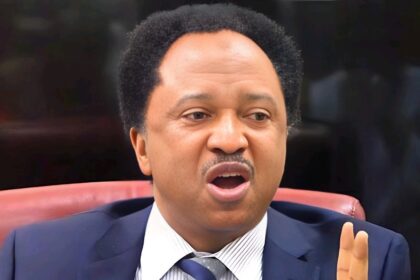After rounding off her working visit to the country, the managing director of the International Monetary Fund (IMF), Ms Christine Lagarde, has tipped the Nigerian economy to recover, albeit, slightly in 2016, in spite of the falling oil prices in the world market.
“In 2015, however, growth is expected to slow to about 3 1/4 percent, with a slight recovery in 2016,” Lagarde said in a statement issued after her visit to Nigeria. She said her prediction for projected recovery was based on the diversification of the country’s economy.
“The economy is well diversified, no longer dominated by agriculture and oil, with services accounting for almost half of GDP, including a significant home-grown film industry and innovative start-ups from fashion to software development. Nigeria has also experienced a decade of strong growth, averaging 6.8 percent a year.
The IMF boss said her visit to Nigeria also afforded her opportunity to discuss with the officials of the Federal Government on how to strengthen the economy while making the transition towards more inclusive and sustainable growth.
“In my meetings with the authorities, we discussed how to maintain economic progress while making the transition towards more inclusive and sustainable growth. Poverty, inequality, and unemployment levels remain too high, in addition to the challenge of the Boko Haram insurgency. Nigeria also has to deal with the difficulties presented by falling oil prices, reduced emerging market demand, and tightening global financial conditions. This has led to sharply lower export earnings and government revenues. The non-oil sector has also been affected and financing for investment is hard to come by.
“Against this background, we discussed a range of policy recommendations related to improving the competitiveness of the Nigerian economy. This includes focusing on the critical area of infrastructure, where power, transportation, and housing are especially key. It also includes identifying ways to broaden the revenue base, particularly to create additional fiscal space to offset the impact of lower oil prices; and the need for careful decisions on borrowing, public spending, and managing the cost of fuel subsidies – with a view to safeguarding priority social sectors and the most vulnerable groups. This will require a package of measures involving business-friendly monetary policy, flexible exchange rate policy, and disciplined fiscal policy, and the implementation of structural reforms.
“I complimented the authorities on their efforts to address corruption, particularly the decision to publish monthly data on the finances and operations of the National Petroleum Corporation.
Transparency and the rule of law will be crucial in reducing constraints to the country’s growth.
“As well as exchanging views with government officials, I had very interesting meetings with a group of women leaders and representatives of business and banks. I also visited the Mother Theresa Children’s
Home charity organization, which provides care, housing, and education to vulnerable children. As always, I found it inspirational to engage with Nigeria’s young people.


